Beginner Friendly & Gentle Yoga
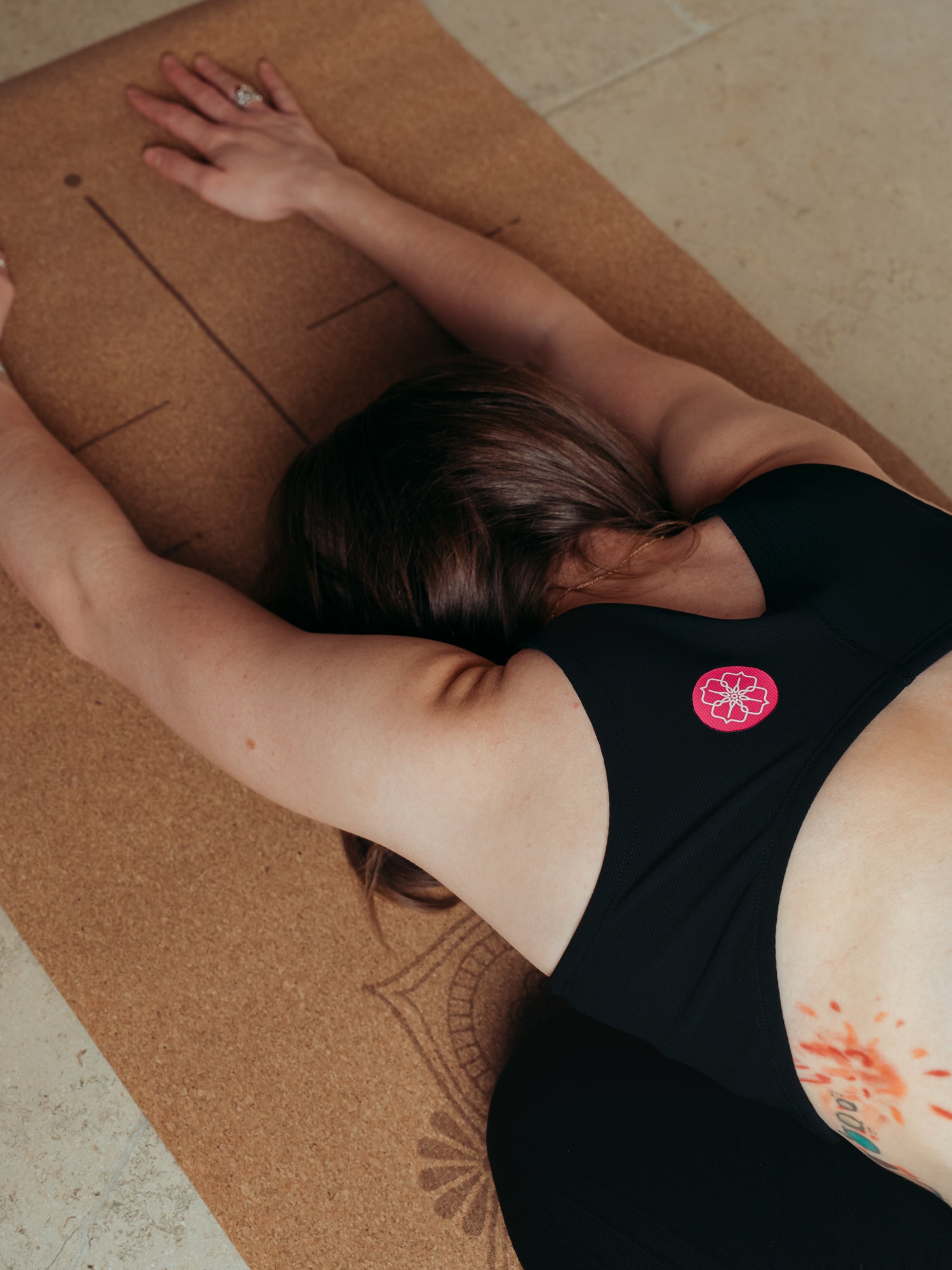
Yin & Candlelight Deep Stretch
Yin and Candlelight Deep are similar styles of yoga that prioritise slow movements and extended holds. In Yin holds last 3 to 6 minutes and in Candlelight Deep Stretch poses are held for 1 to 2 minutes. Despite the length of these holds, the use of props and the slow pace of the practice help to create a deeply relaxing experience.
One of the biggest benefits of slow yoga styles is their soothing nature. These gentle practices help to ground the body and mind, providing a sense of calm and tranquillity.
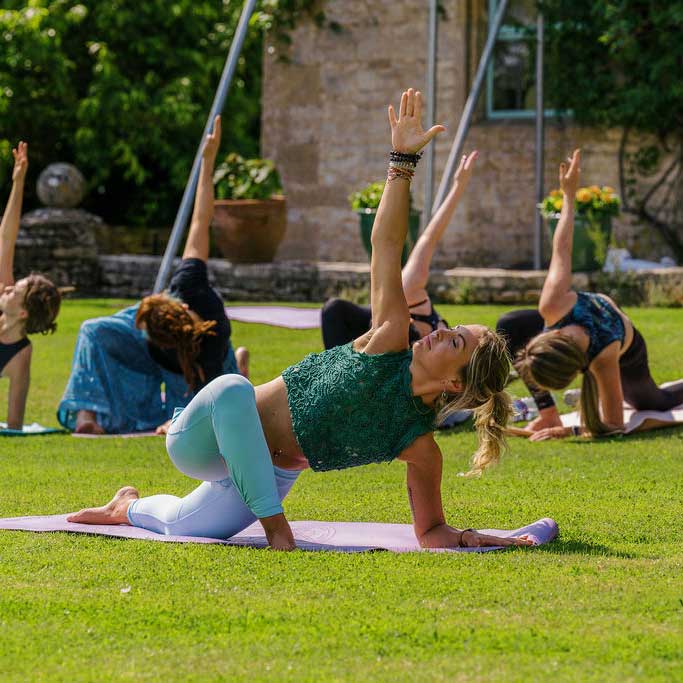
Grounding Hatha, Traditional Hatha & Yin-Hatha
The most popular yoga style found in nearly every yoga studio is Hatha Yoga, which is ideal for beginners. Why is that? Hatha is an ancient, accessible practice that includes breathing exercises, meditation, postures, and relaxation. The best part is that you can take your time to focus on your breath, alignment, and connect your breath with each pose under your yoga teacher's guidance. This style of yoga will also help you to determine whether you prefer more fast-paced, physically demanding yoga styles such as Vinyasa, Ashtanga or slower styles such as Yin or Deep Stretch.
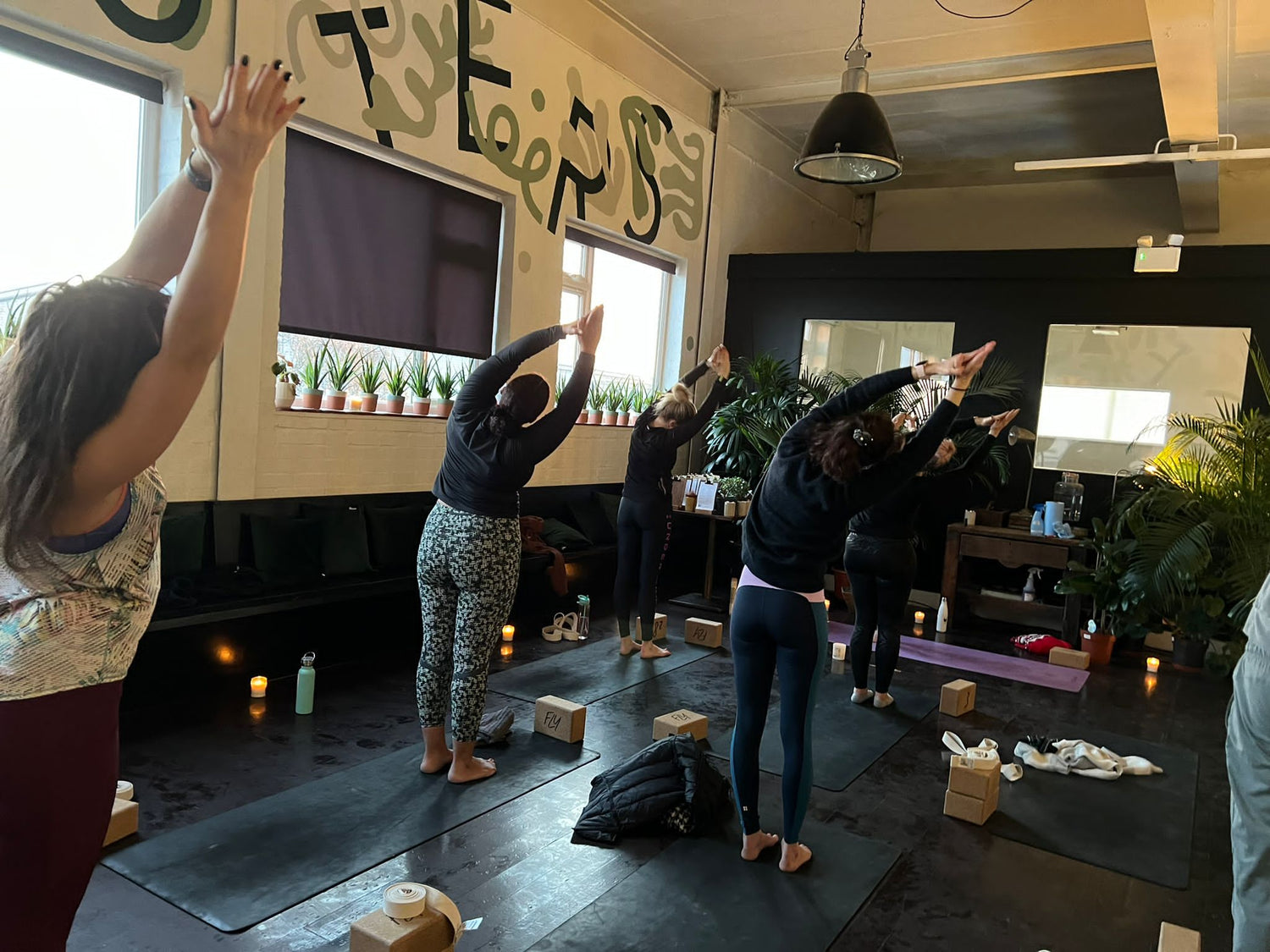
Mindful Vinyasa & Nourishing Flow
These styles of yoga combine the fluid movements and breath synchronisation of traditional Vinyasa with a more relaxed, slower pace. This class focuses on creating a mindful and steady flow, making it accessible for complete beginners and those seeking a gentler, less intense practice. By moving at a slower rhythm, participants have the opportunity to deepen their awareness of each pose, connect with their breath, and build strength and flexibility without feeling rushed. This approach allows for a more meditative experience, perfect for anyone looking to ease into yoga or enjoy a calming yet engaging practice.
Faster Pace Classes
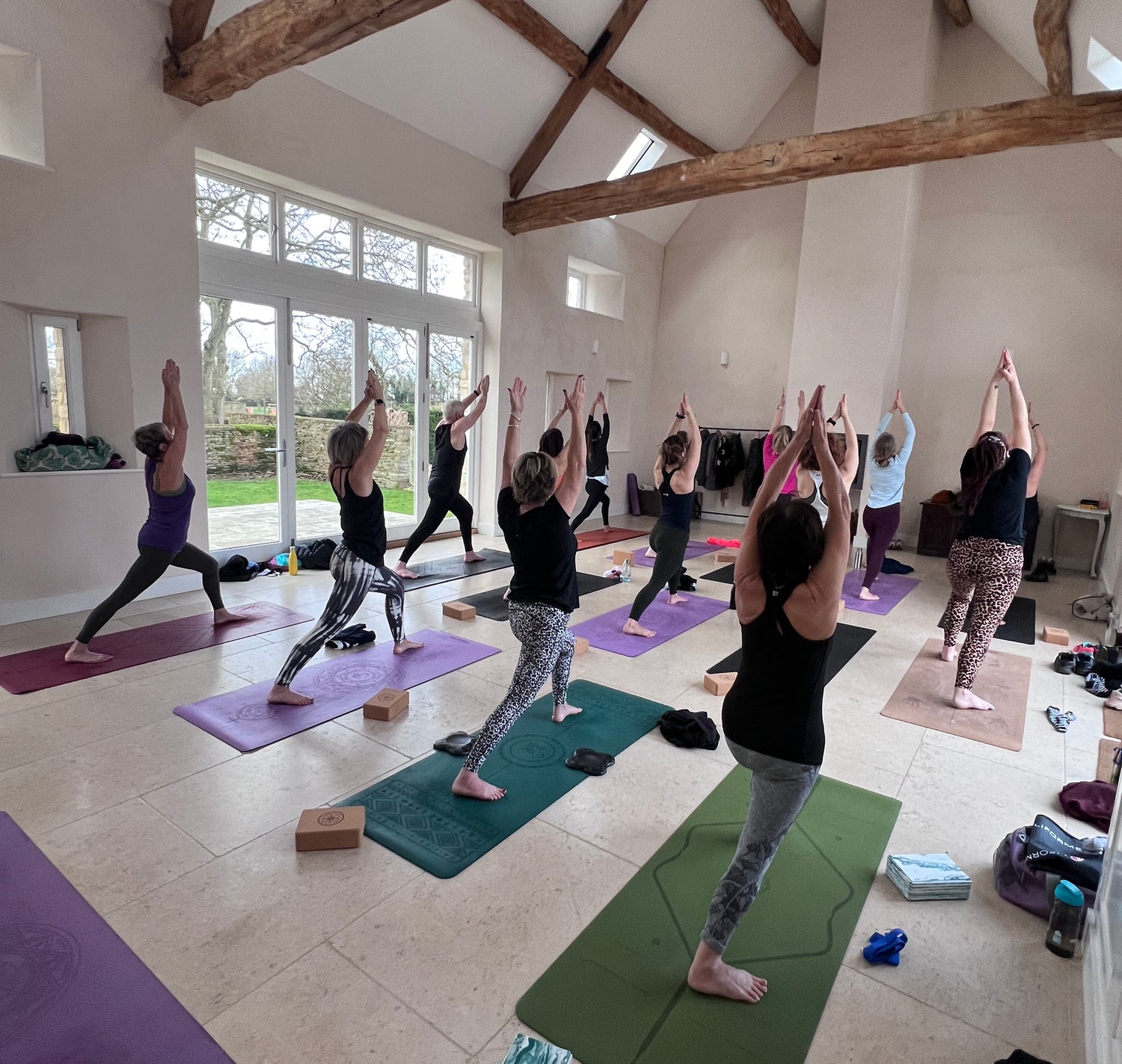
Vinyasa / Flow classes
If you're interested in strength-building, then Vinyasa, Ashtanga, Broga, and Power Yoga are great options. Vinyasa synchronises movement with breath, making it a more dynamic yoga style that improves blood circulation, detoxifies the body, and enhances your internal connection between your mind and body. Gentle Vinyasa classes move at a slower pace, whereas Fiery Vinyasa classes are faster and more challenging.
Vinyasa yoga helps to negate stress and lowers blood pressure. It will also improve your dietary choices as your mind becomes alert with your surroundings. Vinyasa yoga allows body balancing and focuses on the breath which is equivalent to a cardio workout. You push your body beyond gravitational force so come and have fun with us practicing new creative flows every week.
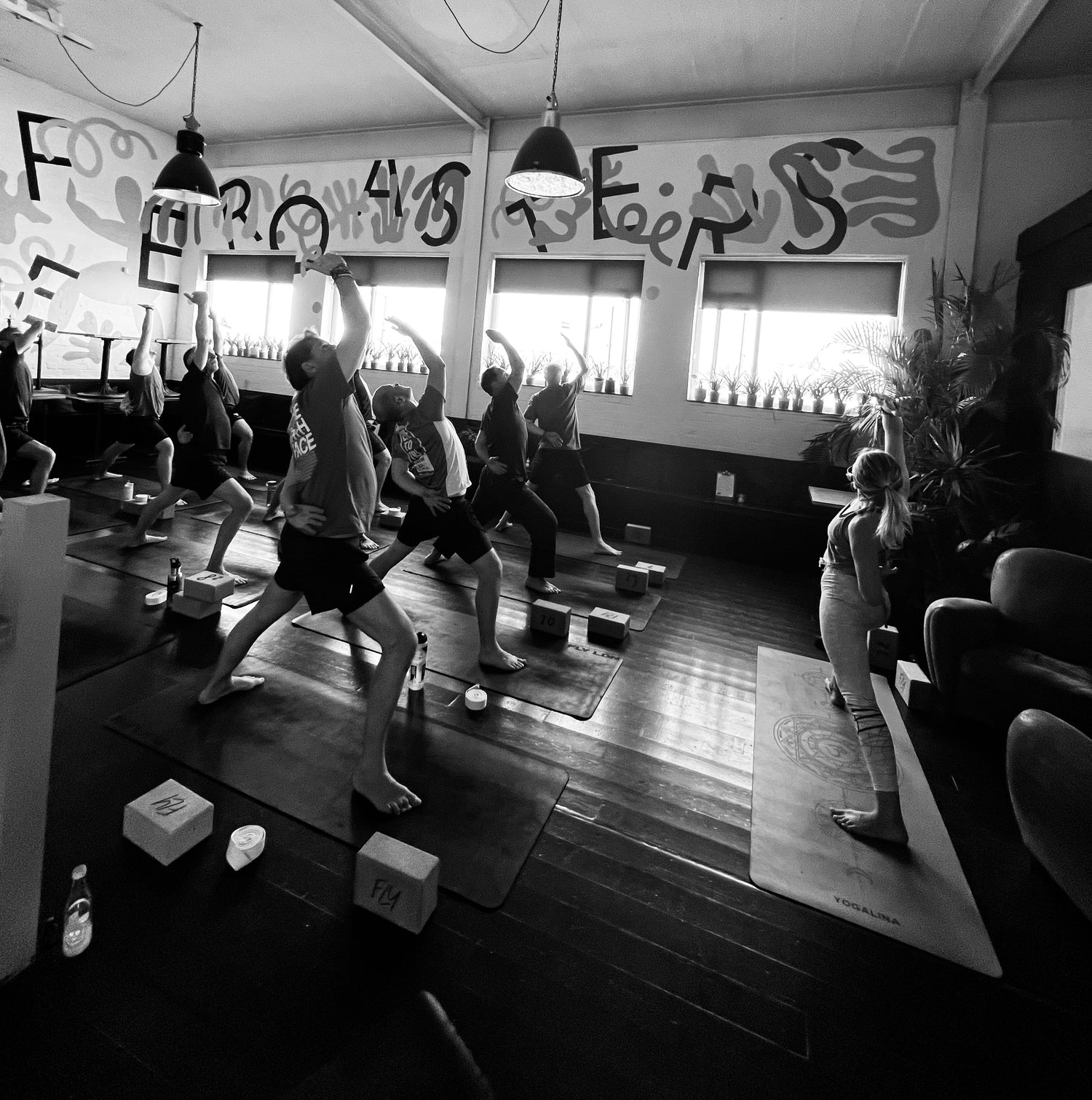
Broga (Yoga For Guys)
Broga is an exercise regime for men that combines fitness exercises with traditional yoga postures.
Men’s bodies move differently than women’s. Men are just naturally not as flexible as women, as some of asanas (poses) are not as attainable for men. Men more muscle-bound and have a different pelvic structure. Hence why we decided to launch this new Broga class for men at the Yogalina centre so men can enjoy the benefits of yoga in a more suitable environment.
Rooted in Vinyasa and Hatha yoga, Broga combines basic yoga postures (minus those Seated Forward Bends that are typically challenging for men), flows, and breathwork with high-intensity interval training to bring the heart rate up, enhancing cardiovascular fitness.
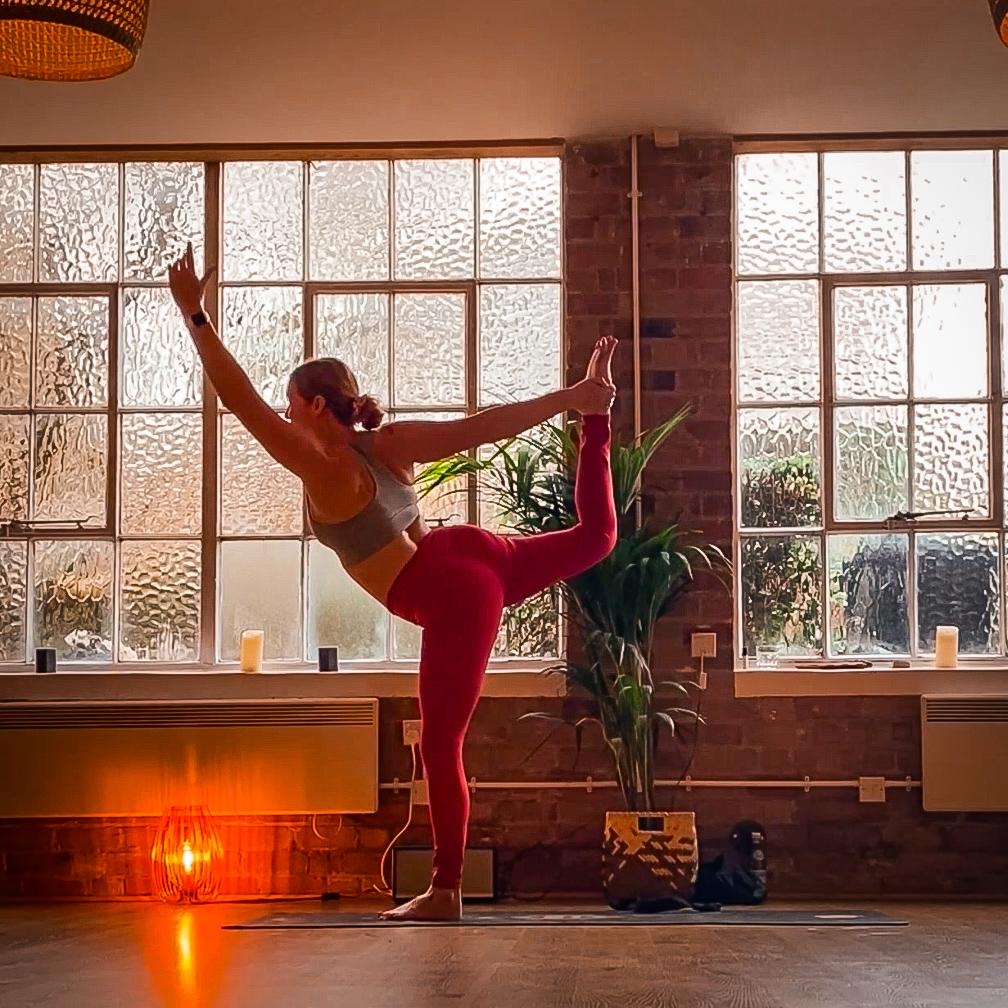
Power + Strength, Yang to Yin & Mandala Vinyasa
Our more fiery classes are designed to ignite your energy, build physical resilience, and deepen your connection to your practice. Power + Strength is an invigorating class that focuses on dynamic movements and building muscular strength, perfect for those who want to challenge their body and push their limits. Yang to Yin balances intensity with restoration, blending a fiery, active flow with the calming, grounding elements of Yin Yoga, helping you to find equilibrium between effort and ease. Mandala is a playful and strong practice that flows 360 degrees around the mat to an empowering soundtrack with a focus on fluidity rather than alignment. The sequences work with one of the four elements (earth, air , fire, water) and their corresponding Chakras as per the Mayan calendar. These classes are ideal for those seeking both physical strength and mental clarity, helping you to cultivate a powerful, balanced practice that energises and transforms.
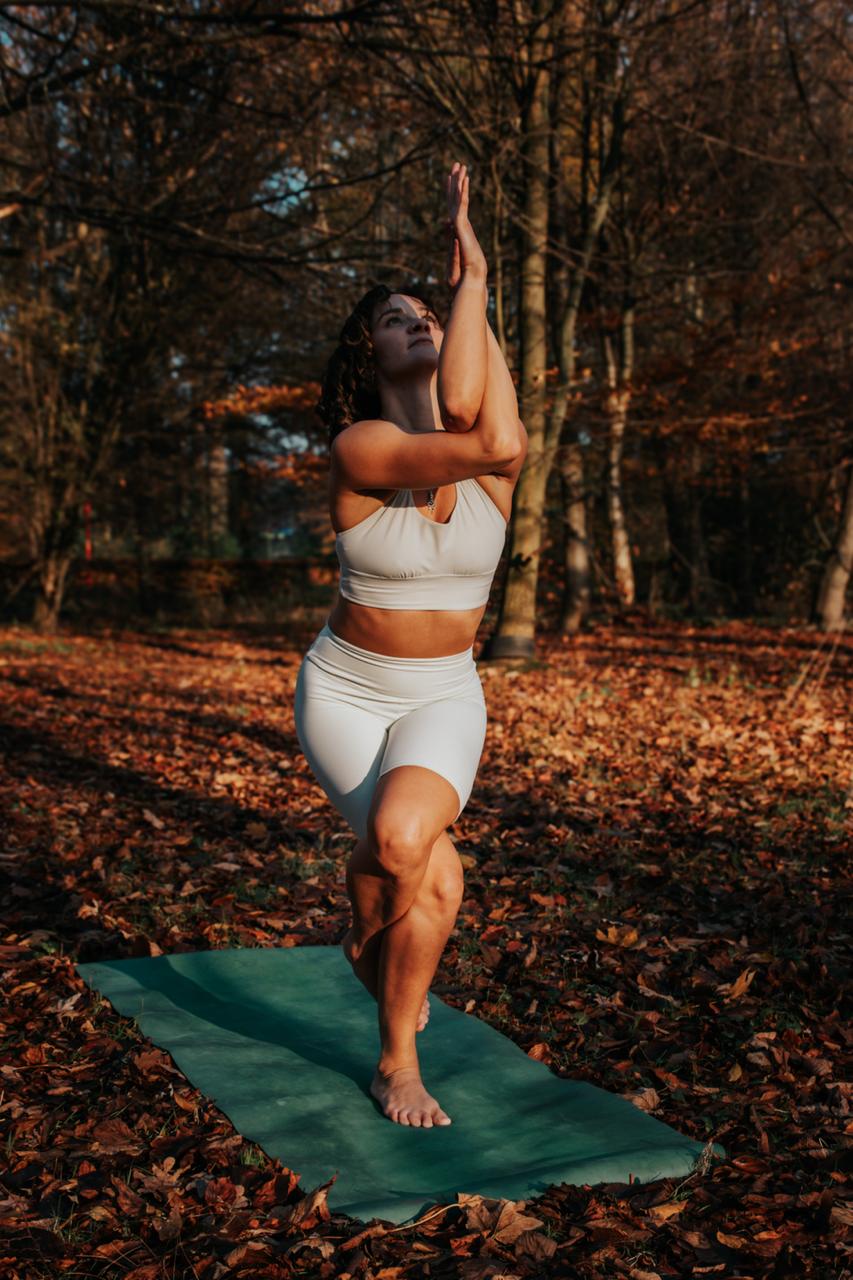
Rocket Yoga
Rocket yoga - also known as 'The Rocket' (founded by Larry Shultz) is a fast paced and playful practice based upon the traditional Ashtanga sequence. Students will pass through the warm-up sequence Sun Salutations A & B, followed by the standing and seated series of Rocket 1 or 2 with options for arm balances, and inversions littered throughout. Rocket yoga encourages exploration and play within the set sequence and modification of the traditional postures is encouraged making the practice more accessible to all practitioners. Expect to build strength, feel invigorated, and get ready for blast off! 🚀
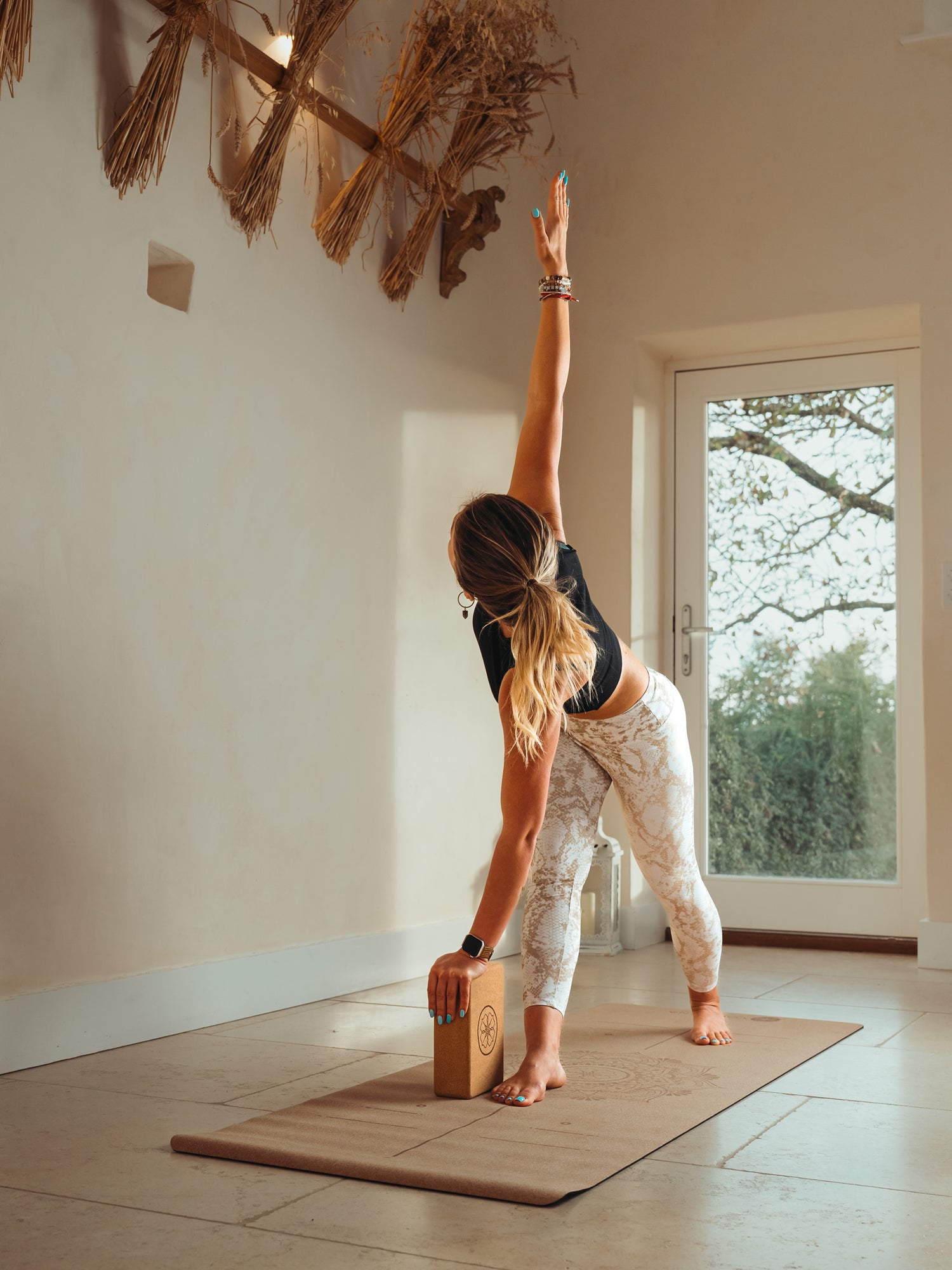
Ashtanga
Ashtanga yoga is a very dynamic and athletic form of Hatha yoga, made up of six series or levels, with a fixed order of postures. It is rooted in vinyasa, the flowing movements between postures, with a focus on energy and breath. While it is a very physical practice, it also promotes mental clarity and inner peace.
Ashtanga yoga focuses on muscle training and develops physical strength. Practicing Ashtanga rejuvenates your body, making it stronger, toned, more flexible and controlled. The opening series includes lots of contortion-esque poses and many of them require core and arm strength.
If you are physically capable of taking a Vinyasa flow class, you are physically capable of taking an Ashtanga class. You may, however, find the Ashtanga class to be more intense because it has a way of bringing you deeper within yourself.
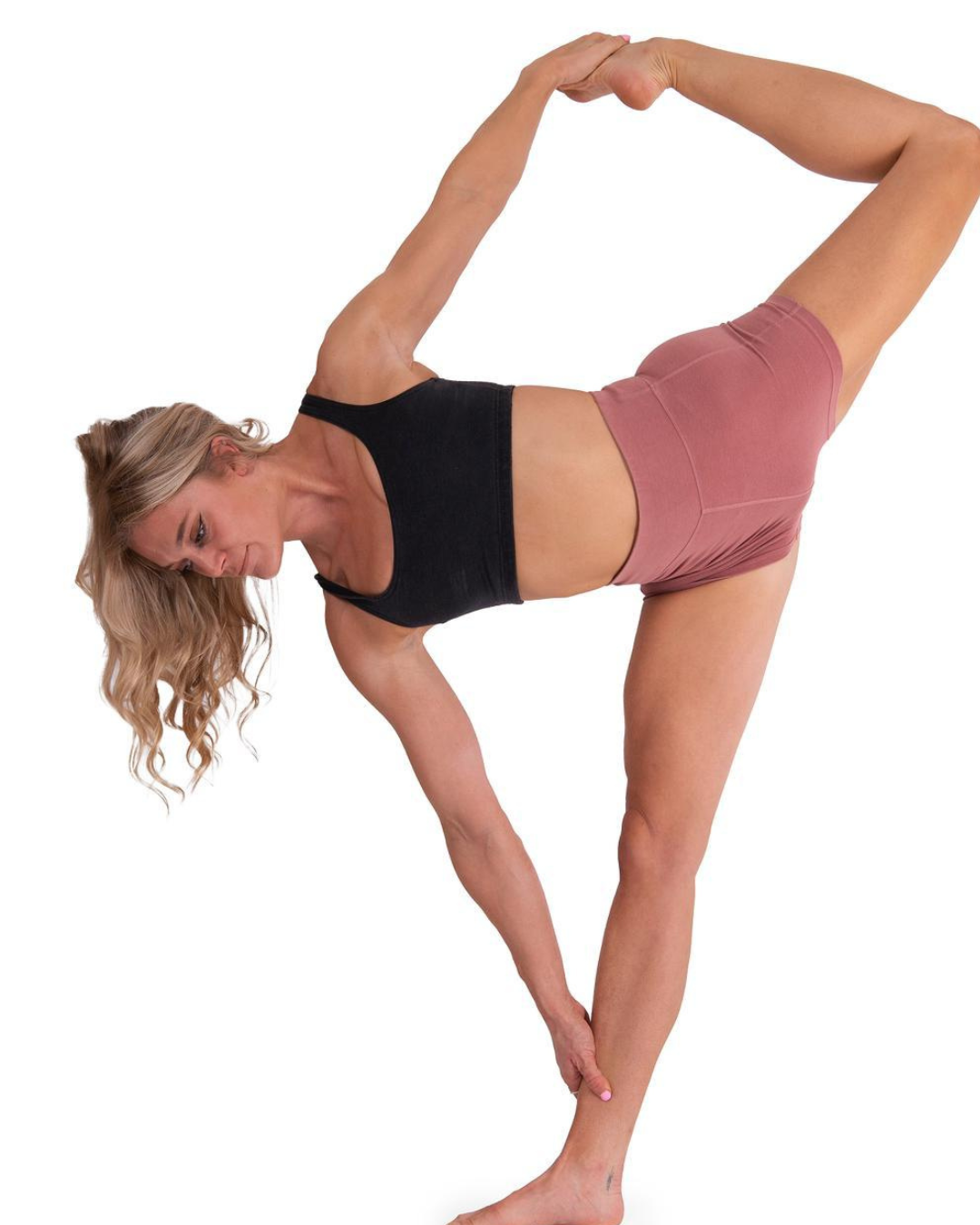
HOT Yoga 🔥
Hot yoga turns up the heat — literally. Practiced in a warm, toasty space, it blends all the benefits of yoga with a little extra sweat and spice. Think of it as your yoga practice... with a sauna vibe.
Originally designed to mirror the heat of India (yoga’s spiritual birthplace), this style helps you stretch deeper, move with ease, and work up a healthy, feel-good glow. Sweating it out isn’t just satisfying — it’s a natural way to detox and refresh. No two classes are quite the same — sequences vary by teacher, and the heat level might shift from warm and cozy to hot and fiery. Whether you're a seasoned yogi or just curious, hot yoga invites you to breathe deep, loosen up, and maybe even surprise yourself.
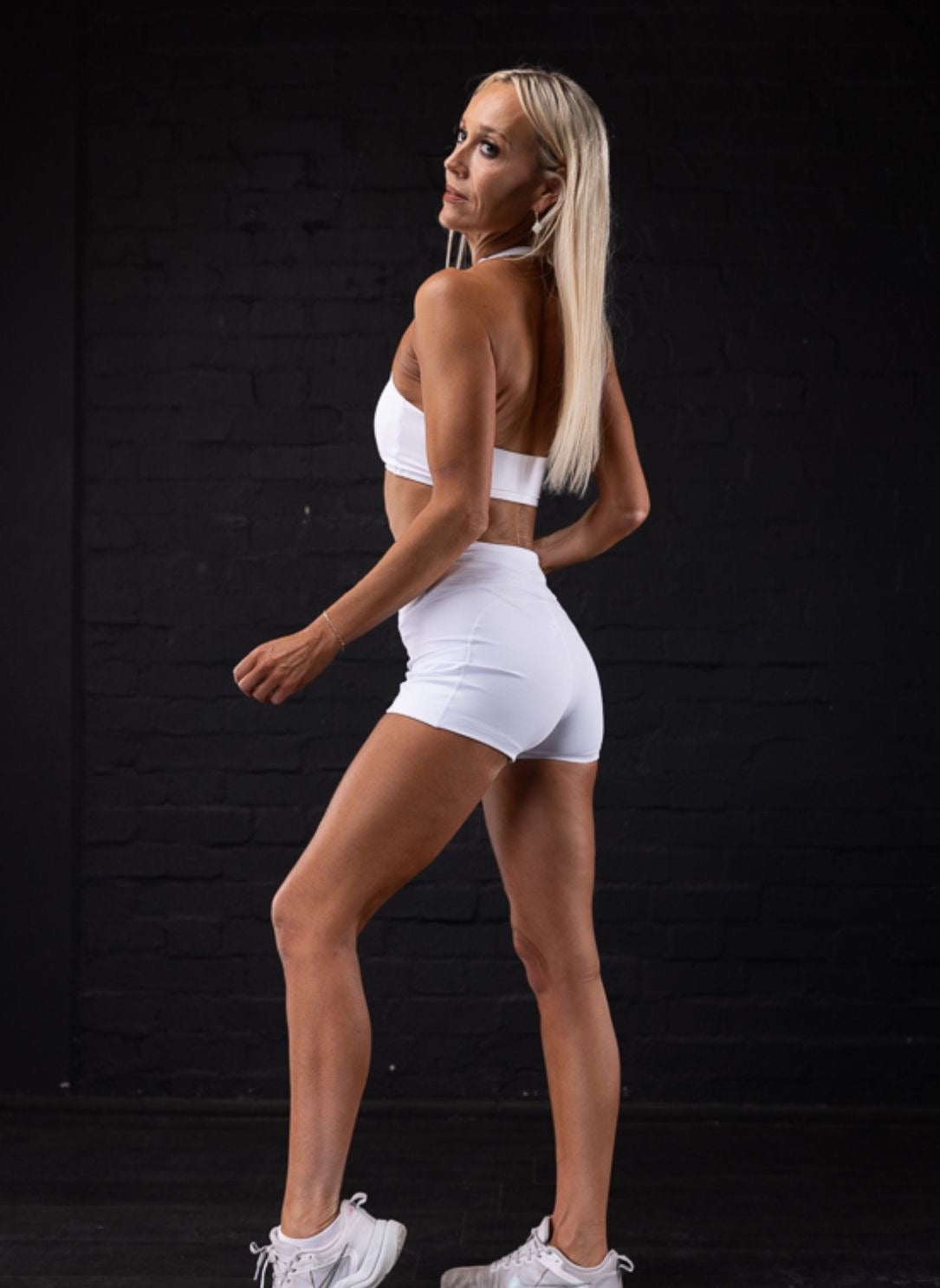
Body Sculpt & Barre
Both of these classes are designed to strengthen, tone, and improve flexibility while promoting core stability and mindful movement. With a focus on precision and control, you will be guided through exercises that target the core muscles, helping to improve overall body alignment and muscular endurance. These classes promote body awareness, build functional strength, and encourage fluid movement, making them suitable for all levels. Perfect for those looking to improve their flexibility, balance, and overall fitness.
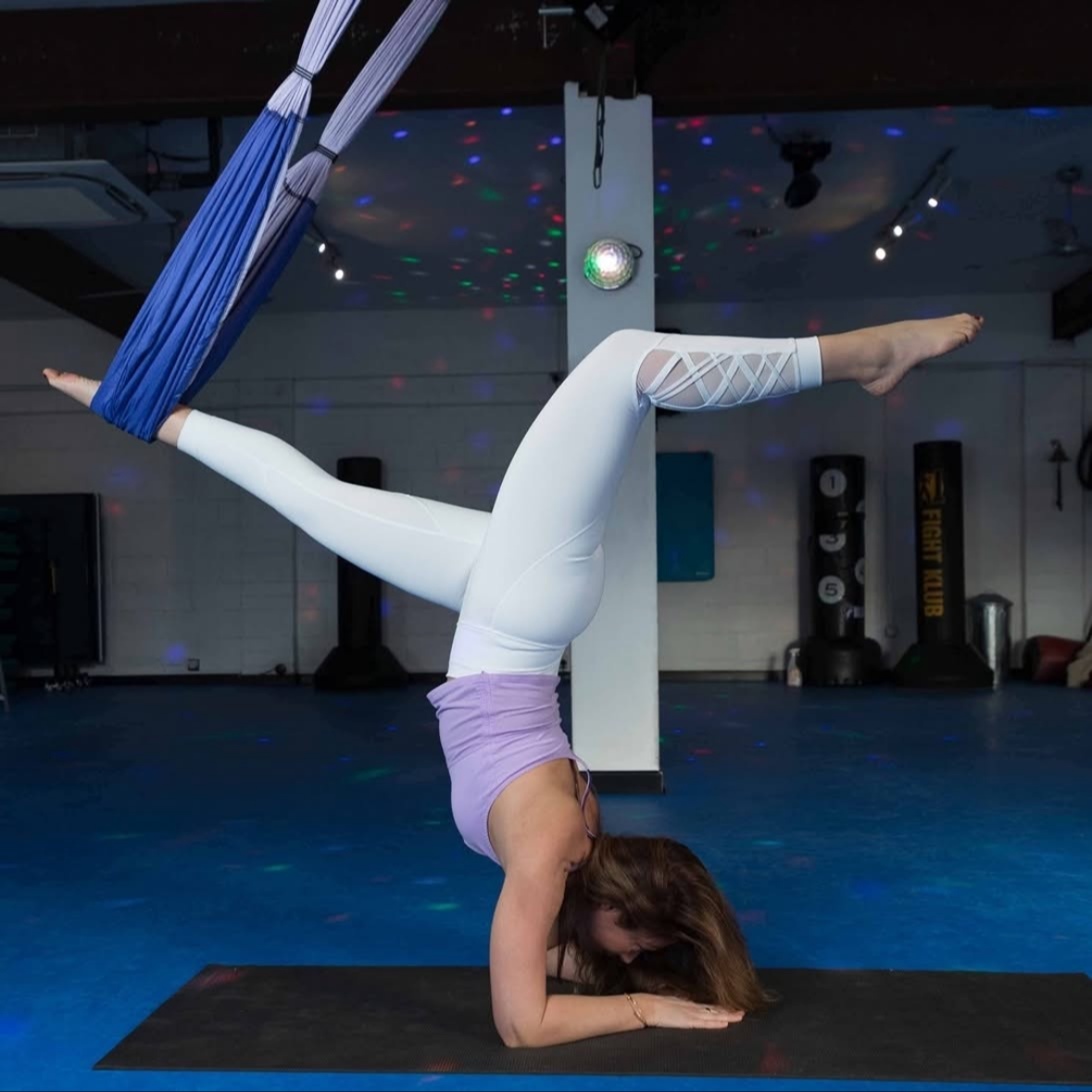
Trapeze Yoga (Ariel)
Yoga Trapeze is a dynamic practice that incorporates a strong, supportive yoga swing to explore movement in new and effective ways. This class blends elements of strength training, flexibility, and spinal traction, using gravity to support and deepen your experience.
You’ll work on core activation, upper body strength, and mobility through poses like backbends, hip openers, and gentle inversions. The swing allows for spinal decompression, helping to relieve pressure in the back and improve posture.
Suitable for all levels, Yoga Trapeze offers a safe and structured approach to building body awareness, confidence, and control—making it ideal for both beginners and experienced practitioners looking to diversify their practice.
